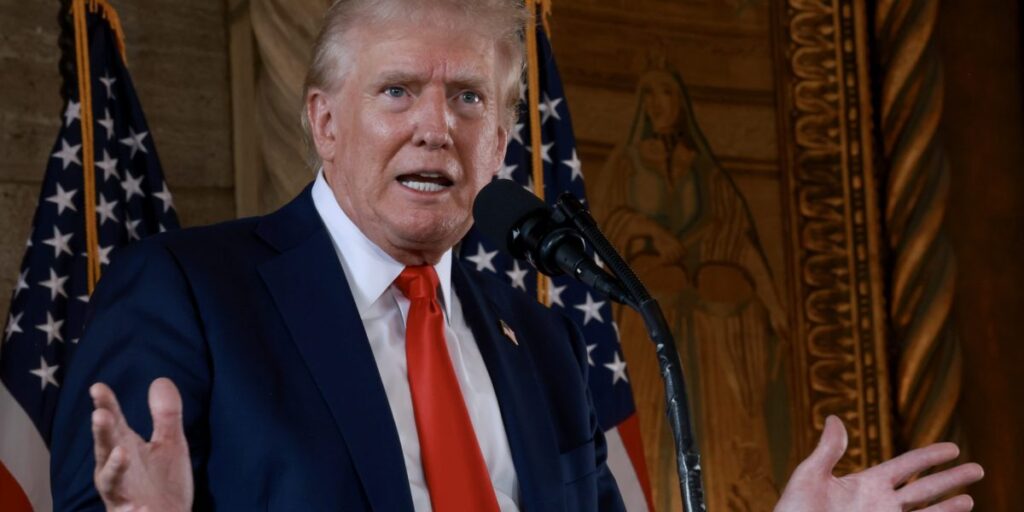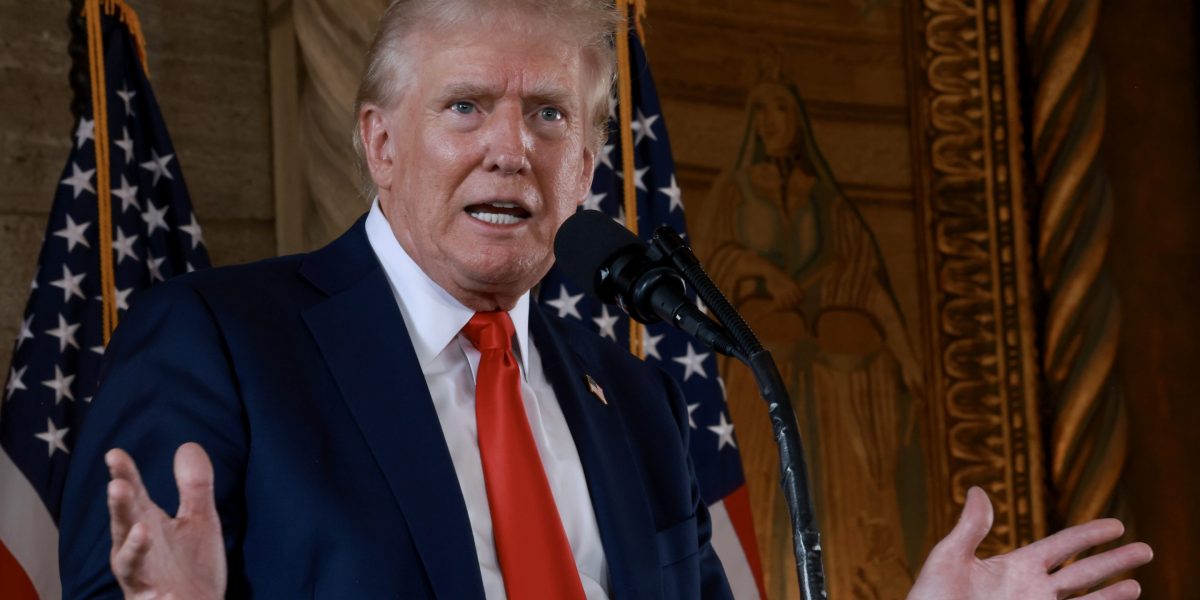Trump’s demand for influence over the Fed conjures comparisons to Nixon
Nixon’s Fed chair Arthur Burns is viewed by many as the worst in the institution’s history for failing to stand up to the White House.


Donald Trump’s assertion that he has a “better instinct” for setting interest rates than the Federal Reserve or its chairman does not appear to have weakened the dollar in the international currency markets.
Markets appear doubtful that Trump could undermine the Fed’s independence should he be elected, believing the former president either would not or could not succeed with the plan.
Trump’s demand for an unofficial seat at the policy-setting table conjured up comparisons in the market to Richard Nixon’s influence over Fed chair Arthur Burns. Considered by many to be the worst leader in the Fed’s history, Burns presided over the period of stagflation—high inflation and low growth—in the 1970s in part because, historians say, he was too weak to stand up to the White House.
“Nixon […] strongly influenced then Federal Reserve Chair Burns,” warned UBS Global Wealth Management chief economist Paul Donovan in a research note to clients on Friday.
Yet the U.S. dollar index, which tracks the performance of the world’s reserve currency versus a basket of peers, has shown little sign of weakness as yet. Following three straight days of gains, it was broadly flat at 103.19 points in early trading.
“Investors seem to have been inclined to dismiss Trump policies with more extreme economic outcomes as a case of the former president not being serious,” Donovan added. “If there were evidence that Trump were to be serious about these policies, markets would probably react.”
Already during his presidency, Trump was an active, vocal and repeated critic of Fed chair Jay Powell. But his comments on Thursday at a press briefing are a clear sign that he has more forceful action in mind.
“I feel the president should have at least [a] say in there,” he told reporters at his Mar-a-Lago residence. “I think I have a better instinct than, in many cases, people that would be on the Federal Reserve, or the chairman,” he argued since he “made a lot of money”.
This follows a story published by the Wall Street Journal in April stating Trump wants to be consulted prior to the Fed’s FOMC setting interest rate policy, a report that his campaign had downplayed at the time.
Strict walls separating monetary and fiscal policy
Central bank independence is considered sacrosanct for modern industrial economies—as important a check and balance when running the economy as the separation of powers between the three branches of the U.S. government.
Even a hint of these lines blurring can be detrimental, one reason why the Fed assiduously avoids commenting on the dollar’s exchange rate, which falls under the purview of the U.S. Treasury. A recent prime example of controversy involves former Fed chair Janet Yellen, Biden’s cabinet secretary in charge of the government purse strings.
Last month noted economist Nouriel Roubini accused her of “usurping core functions of the Federal Reserve” and undermining its restrictive monetary policy ahead of the November election by engaging in a kind of backdoor quantitative easing.
Through a shift that favors issuing more short-duration bills at the expense of benchmark 10-year bonds, he argued, Yellen artificially shrank supply of the latter, driving down yields on the long end of the curve.
Not only does this benefit the housing market, he believed the effect is equivalent to that of a stealth interest rate cut—a claim Yellen was forced to deny amid Republican outcry.
Trump: I think the US president should have a say in Fed actions
Blond Erdogan
— Ragıp Soylu (@ragipsoylu) August 8, 2024
It’s not hard then to imagine the kind of damage that can be done were the head of state to directly and forcefully intervene in monetary policy. In fact there’s already plenty of evidence.
Turkey’s Recep Tayyip Erdoğan repeatedly mismanaged his currency by sacking central bank governors who pushed for rate hikes. Turning conventional wisdom on its head, the Turkish president argued only low borrowing costs could combat spiralling consumer prices.
Official inflation hit 75% for the month of May, though it has eased since.
Upon learning of Trump’s plan to encroach upon the Fed’s independence, the Middle East Eye’s bureau chief for Turkey, Ragıp Soylu, had this to say about the Republican nominee: “Blond Erdogan”.





